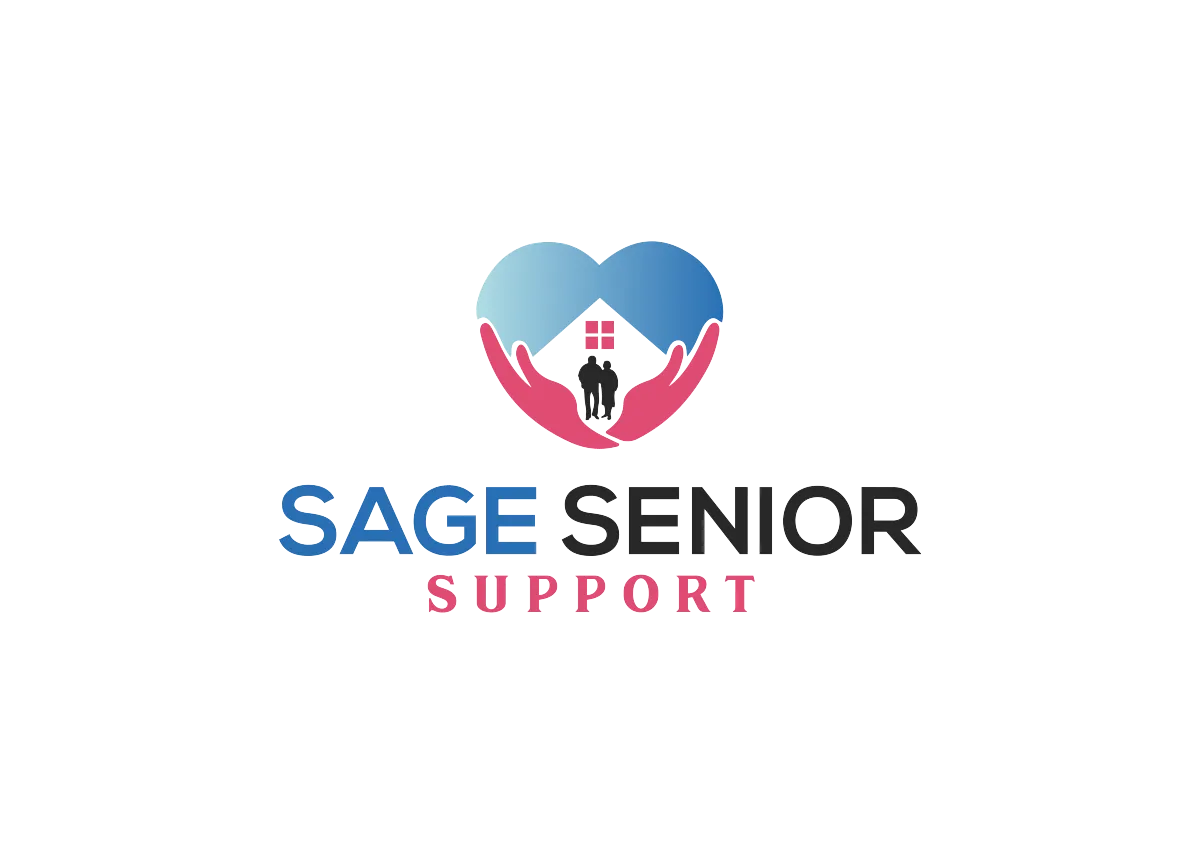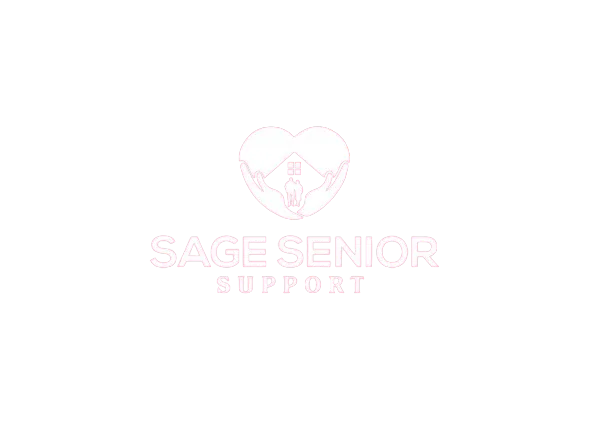
Finding Your Village: The Essential Team You Need When Helping an Aging Parent
Building a "village" of specialized professionals for aging parents improves health outcomes while reducing caregiver burnout. From geriatricians to elder law attorneys, each team member provides essential expertise that no single person can offer. Don't wait for a crisis—assemble this support network early for better care options.
Key Takeaways:
Creating a comprehensive care team or 'village' for your aging parent leads to better health outcomes and reduces caregiver stress.
Specialized medical professionals like geriatricians understand the unique needs of older adults better than general practitioners.
Geriatric Care Managers can serve as professional navigators through the complex world of elder care services.
Legal and financial planning should happen before a crisis, as waiting limits your options and can deplete assets quickly.
Sage Senior Support offers personalized assistance in assembling and coordinating the right care team for your aging parent's unique needs.
Finding Your Aging Parent's Care Team: Why You Can't Do It Alone
When my father started struggling with daily tasks after his Parkinson's diagnosis, I thought I could handle everything myself. I was wrong. Trying to navigate his medical appointments, medication management, home safety concerns, and financial paperwork while working full-time nearly caused me to burn out within months.
The truth is that supporting an aging parent is rarely a one-person job. Their needs span multiple domains – medical, financial, legal, and daily living – each requiring specialized knowledge and skills that no single person possesses.
That's where the concept of building a 'village' comes in. This approach recognizes that elder care works best when diverse professionals collaborate to address interconnected needs. Sage Senior Support specializes in helping families build this essential network of care providers for their aging loved ones.
Research consistently shows that a coordinated approach leads to better health outcomes, fewer hospital readmissions, and improved quality of life for both aging parents and their family caregivers. It can also prevent costly mistakes, reduce unnecessary treatments, and help aging parents maintain independence longer.
"Families often wait until they're in crisis mode before seeking help," explains Maria Chen, Certified Geriatric Care Manager. "But building your support team proactively gives you more options and typically results in better care."
Let's discuss the essential professionals who might form part of your parent's care village, starting with the medical team that forms the foundation of quality elder care.
Key Medical Professionals Every Aging Parent Needs
1. Geriatricians: The Specialized Physicians for Complex Aging
Unlike general practitioners, geriatricians are physicians who have completed additional specialized training in caring for older adults. These specialists understand how the body changes with age and can distinguish between normal aging and actual disease symptoms – a critical skill when treating seniors.
"When my mother's primary care doctor kept attributing her symptoms to 'just getting older,' we sought out a geriatrician who diagnosed an underlying thyroid condition that was completely treatable," shares Roberto, whose 82-year-old mother now enjoys renewed energy and clarity.
Geriatricians excel at managing multiple conditions simultaneously, focusing not just on treating individual diseases but on maximizing overall function and quality of life. They're particularly valuable for seniors who:
Are physically frail
Have multiple chronic medical conditions
Take several medications (polypharmacy)
Experience cognitive changes or memory issues
Need care coordinated among multiple specialists
To find a qualified geriatrician, ask for recommendations from your parent's primary care doctor, check with local senior centers, or use the American Geriatrics Society's physician finder.
2. Nurses: From Basic Care to Advanced Practice
Nurses form the backbone of daily medical support for aging adults, working across settings from doctor's offices to home care. Different nursing roles provide varying levels of support:
Registered Nurses (RNs) deliver most direct health care, supervise other nursing staff, perform physical examinations, and administer medications.
Licensed Practical Nurses (LPNs) provide basic nursing care under RN supervision.
Geriatric Nurse Specialists are RNs with advanced training specifically in elder care.
Nurse Practitioners (NPs) have advanced training that allows them to diagnose conditions, order tests, and prescribe medications, often serving as primary care providers for seniors.
Nurses excel at coordinating care by communicating crucial information between healthcare providers, patients, and families. They also provide essential education on managing health conditions, medication regimens, and self-care techniques.
3. Therapists: Maintaining Independence and Function
As we age, maintaining physical function and independence becomes increasingly important. Three types of therapists are particularly valuable for seniors:
Physical Therapists: Mobility and Fall Prevention Experts
Physical therapists (PTs) help seniors improve balance, strength, and mobility while reducing fall risk. They're invaluable after events like strokes, hip replacements, or when chronic conditions like arthritis limit movement.
My father's PT developed a customized exercise program that improved his stability, allowing him to continue his daily neighborhood walks despite his Parkinson's progression.
Look for physical therapists with a Geriatric Certified Specialist (GCS) credential, which indicates specialized training in working with older adults.
Occupational Therapists: Masters of Daily Living Adaptations
Occupational therapists (OTs) focus on helping seniors maintain independence in daily activities like dressing, bathing, and cooking. They recommend adaptive equipment and techniques that make everyday tasks possible despite physical limitations.
An OT might:
Suggest bathroom modifications to prevent falls
Recommend specialized utensils for easier eating
Teach energy conservation techniques for those with limited stamina
Develop strategies to compensate for cognitive changes
- Custom HTML/CSS/JAVASCRIPT
Speech-Language Pathologists: Communication and Swallowing Support
Speech-language pathologists (SLPs) do far more than their title suggests. They help with communication difficulties resulting from strokes or neurological conditions, but also address swallowing problems (dysphagia) that can lead to serious complications like aspiration pneumonia.
4. Pharmacists: Your Defense Against Medication Errors
Medication management becomes increasingly complex as we age. Many seniors take multiple prescriptions, increasing the risk of dangerous interactions. Pharmacists play a crucial role by:
Reviewing medications to identify potential interactions or inappropriate prescriptions
Ensuring proper dosing for older adults, who often process medications differently
Providing education on proper medication use and possible side effects
Performing medication reconciliation during transitions between care settings
Consider finding a pharmacist who specializes in geriatric pharmacy or one who offers comprehensive medication reviews.
5. Dietitians: Ensuring Proper Nutrition Through Aging
Nutritional needs change significantly with age, and proper nutrition becomes critical for managing chronic conditions, maintaining strength, and supporting overall health.
Registered Dietitian Nutritionists (RDNs) assess nutritional status and provide tailored recommendations for aging adults, especially those with conditions like diabetes, heart disease, or kidney problems.
An RDN can help by:
Creating manageable meal plans that address medical needs while respecting preferences
Addressing challenges like decreased appetite or difficulty chewing/swallowing
Recommending appropriate supplements when necessary
Providing strategies for maintaining adequate hydration
Look for dietitians with experience in geriatric nutrition through the Academy of Nutrition and Dietetics' "Find a Nutrition Expert" tool.
The Critical Care Coordination Team
Geriatric Care Managers: Your Professional Elder Care Navigator
Perhaps the most valuable member of your parent's village – especially if you don't live nearby or have limited time – is a Geriatric Care Manager (also called an Aging Life Care Professional).
These professionals, typically with backgrounds in nursing, social work, or gerontology, serve as expert guides through the maze of elder care. They conduct comprehensive assessments to determine your parent's needs, coordinate appropriate services, monitor care quality, and adjust the plan as needs change.
"I live three states away from my mother, and our care manager has been invaluable," says Anita, whose 86-year-old mother lives alone with early-stage dementia. "She texts me updates after every doctor's appointment, caught medication errors twice, and helped us find the perfect home care aide who speaks Mom's native language."
Geriatric Care Managers typically offer services including:
Comprehensive needs assessments
Care planning and coordination
Regular home visits to monitor wellbeing
Crisis intervention and problem-solving
Family coaching and education
Assistance with transitions between care settings
While their services aren't typically covered by insurance, many families find the investment worthwhile – especially when compared to the cost of mistakes or unnecessary care. To find a qualified care manager, look for credentials like CMC (Care Manager Certified), LCSW (Licensed Clinical Social Worker) with gerontology specialization, or membership in the Aging Life Care Association.
Social Workers: Connecting Families with Essential Resources
Social workers specializing in gerontology help older adults and their families navigate the often confusing landscape of social services and community resources.
They excel at:
Connecting families with appropriate community services
Facilitating difficult family discussions about care options
Providing counseling for anxiety, depression, or adjustment issues
Assisting with insurance applications and paperwork
Coordinating hospital discharges and facility transfers
Medicare covers medical social services when ordered by a doctor if the patient is also receiving skilled care. For those who qualify, Medicaid also covers social work services as part of comprehensive care plans.
The Financial and Legal Protection Team
Elder Law Attorneys: Protecting Assets and Wishes
Elder law attorneys specialize in legal issues affecting older adults and their caregivers, providing crucial protection for both finances and personal autonomy.
"The biggest mistake I see families make is waiting until there's a crisis to consult an elder law attorney," says Jerome Wilson, Certified Elder Law Attorney (CELA). "By then, many protective options are no longer available."
These specialists handle matters including:
Essential estate planning (wills, trusts)
Power of attorney documents for healthcare and finances
Advance healthcare directives
Medicaid planning and applications
Guardianship and conservatorship when necessary
Asset protection strategies
The gold standard credential in this field is the CELA (Certified Elder Law Attorney) designation, which requires rigorous testing and extensive experience in elder law matters. To find a qualified attorney, check the National Academy of Elder Law Attorneys directory or your state bar association's referral service.
Financial Planners: Securing Long-Term Care Funding
Financial planners with expertise in elder care help families navigate the significant costs associated with aging and long-term care.
A qualified financial planner can assist with:
Analyzing current and future financial needs
Managing investments appropriate for this life stage
Creating a sustainable withdrawal strategy from retirement accounts
Planning for potential Medicaid eligibility if needed
Look for credentials like Certified Financial Planner (CFP) or Chartered Senior Financial Planner (CSFP), and prioritize advisors who operate as fiduciaries, legally obligated to put your parent's interests first.
Building and Managing Your Village Effectively
1. Establishing Clear Communication Channels
Once you've assembled your team, effective communication becomes essential. Consider these strategies:
Designate a central coordinator (either yourself or a Geriatric Care Manager)
Create a shared contact list with all team members' information
Use digital tools like shared calendars for appointments
Consider HIPAA-compliant care coordination apps like CareZone or Caring Village
Hold regular team meetings or calls with key members
"I created a simple Google Doc with everyone's contact information and roles," shares Miguel, whose father has Alzheimer's. "It saves tremendous time when someone needs to communicate with another team member."
2. Managing Role Overlap and Conflicting Advice
With multiple professionals involved, conflicting recommendations can occur. Establish a clear decision-making hierarchy and encourage direct communication between professionals when concerns arise.
Remember that you (or your parent, if capable) remain at the center of all decisions. Professionals advise, but final choices rest with the patient or designated decision-maker.
3. Technology Tools for Coordinating Complex Care
Numerous apps and digital platforms now facilitate care coordination:
Medication management apps like Medisafe or PillPack that track prescriptions and dosing schedules
Care coordination platforms like Lotsa Helping Hands that allow secure messaging between team members
Calendar-sharing tools for appointment management
Document-sharing systems like MyChart for medical records and care plans
4. Supporting the Family Caregiver as Team Leader
Family caregivers often serve as the glue holding the care team together, but this role comes with significant stress. Prioritize your own wellbeing by:
Delegating tasks whenever possible
Joining caregiver support groups (online or in-person)
Using respite care services regularly
Setting boundaries around your availability
Accepting that perfect care is not always possible
Essential Government and Community Resources
Medicare, Medicaid, and Insurance: What They Actually Cover
Understanding coverage options is crucial for financial planning:
Medicare primarily covers acute medical care and limited short-term rehabilitation. It does not cover long-term custodial care (help with bathing, dressing, etc.).
Medicaid covers long-term care, including nursing homes and some home care services, but only for those meeting strict financial eligibility requirements.
Long-Term Care Insurance can cover services not paid by Medicare, but must be purchased before significant health issues arise.
Area Agencies on Aging: Your Local Connection Point
Every community has an Area Agency on Aging (AAA) that serves as a hub for local senior services. These agencies can connect you with:
Home-delivered meals
Transportation services
Caregiver support programs
Adult day programs
Senior center activities
Legal assistance
Find your local AAA through the Eldercare Locator (eldercare.acl.gov or 1-800-677-1116).
Don't Wait for a Crisis: Start Building Your Village Today
Assembling your parent's care team takes time. The best outcomes occur when this process begins before a crisis forces rushed decisions. Start with a family conversation about goals and preferences, then gradually build relationships with key professionals.
Remember that your village will evolve as your parent's needs change. What begins as occasional support may eventually grow into a comprehensive care network. The earlier you start, the more options remain available.
Sage Senior Support specializes in helping families build and coordinate the perfect village of support for their aging loved ones.


